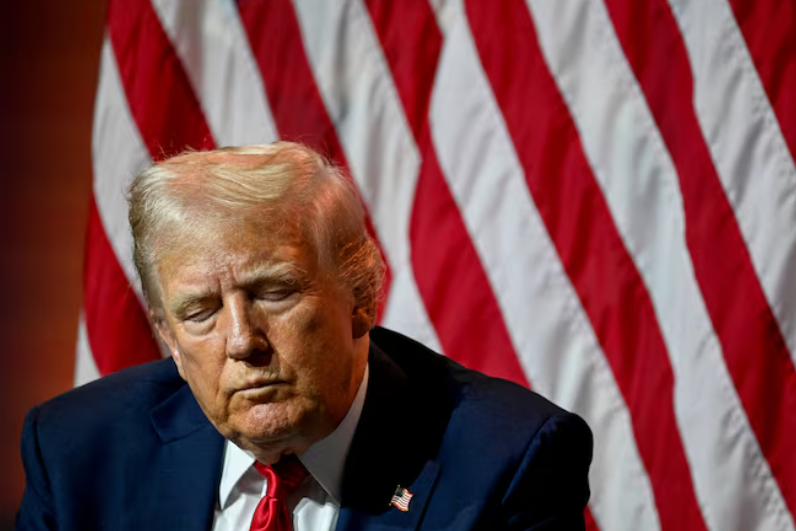On Thursday, the U.S. Supreme Court paved the way for President-elect Donald Trump to be sentenced in a criminal case involving hush money payments to a porn star. The 5-4 decision saw two conservative justices, Chief Justice John Roberts and Justice Amy Coney Barrett, join the three liberal justices—Sonia Sotomayor, Elena Kagan, and Ketanji Brown Jackson—in denying Trump’s last-minute request to halt his sentencing.
Supreme Court Denies Trump’s Request
Trump’s bid to prevent his sentencing, scheduled for Friday in New York state court, was rejected by the court. The brief, unsigned order provided two key reasons for the decision. First, it stated that any alleged evidentiary violations could be addressed on appeal. Second, the order noted that the burden on Trump’s responsibilities was minimal, as the trial court intended to impose an “unconditional discharge” following a brief virtual hearing.
Justice Juan Merchan, who presided over Trump’s trial, indicated that he would not sentence Trump to prison. Instead, he planned to issue an unconditional discharge, placing a guilty judgment on Trump’s record without imposing custody, fines, or probation. The sentencing is set for 9:30 a.m. on Friday.
Dissent and Legal Arguments
Four conservative justices—Clarence Thomas, Samuel Alito, Neil Gorsuch, and Brett Kavanaugh—dissented from the majority decision but did not provide their reasoning. Despite the court’s conservative majority, this ruling marked a significant moment in Trump’s legal battles.
Trump responded to the decision at his Mar-a-Lago residence in Florida, stating, “I read it, and I thought it was a fair decision, actually.” On his social media platform, he announced plans to appeal, expressing confidence that “JUSTICE WILL PREVAIL.”
Legal Context and Ongoing Appeals
Trump’s legal team argued that the prosecution improperly admitted evidence of his official acts during the trial and claimed that, as president-elect, he was immune from prosecution between his election victory and inauguration. However, New York prosecutors refuted these arguments, emphasizing that the case concerned Trump’s personal conduct and that his immunity claim lacked legal precedent.
This decision follows Trump’s conviction last May on 34 counts of falsifying business records related to a $130,000 payment to Stormy Daniels before the 2016 election. Trump has denied any wrongdoing, asserting that the prosecution was politically motivated.
The Supreme Court’s ruling underscores the legal complexities surrounding Trump’s conviction and the broader implications for presidential immunity and accountability.

